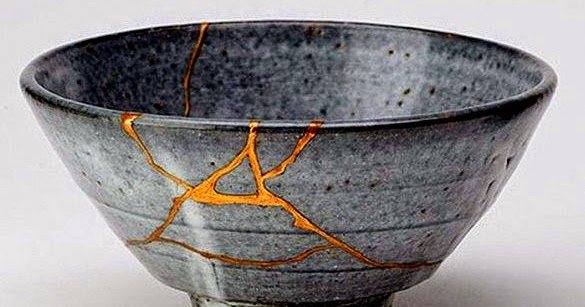This article originally appeared in A&U Magazine.

When the Japanese mend broken objects, they emphasize the damage by filling in the cracks with gold.
They believe that when something has suffered damage and has history, it becomes more beautiful than before.
This is kintsugi, the art of “fixing with gold.”
We were broken.
Thirty-six years ago, a virus invaded our community, invaded our bodies. It destroyed hundreds of thousands of us. Those of us whom the virus couldn’t kill, it left broken—physically, emotionally, financially, spiritually broken.
We have suffered damage.
Those of us who carry the virus inside us know well the damage it has wreaked.
We are all-too-familiar with the Kaposi sarcoma, the pneumocystis pneumonia, the neuropathy, the lipodystrophy, the loss of bone strength, and the accelerated aging that the virus has wrought. We know all too well the debilitating post-trauma nightmares, the paralyzing, numbing fear of dying unimaginably painful deaths.
Those whom the virus missed have suffered alongside us — they and we have endured the same innumerable losses, the same chaotic terror of the early years of the Plague, the same unspeakable horror and grief of watching helplessly as our friends, our lovers, our co-workers, our family members fell to the virus, shriveled, and died.
We have history.
Both alone and together as a community, we survivors of the virus share a history of widespread stigma; of being shunned and feared like lepers; of being ignored by a government that seemed to want us to die; of being unpaid guinea pigs for pharmaceutical companies; of being duped by charlatans peddling snake-oil “cures” and phony feel-good psycho-babble bromides; of hatred aimed at us, sometimes, sadly, from within our own community. We share a history of innumerable hospital rooms and hospice beds and memorial services; a history of Acting Up, of fighting and marching for research and treatment options; a history of frustrations, disappointments and defeats. We share a history of oceans of tears, of cracks in our hearts, of hopes dashed and dreams unlived.
We are mending.
And yet, beyond all our expectations, beyond our wildest hopes, we are mending!
We come together — in all our diversity, despite our differences, in the face of our individual and shared griefs — we come together to feed one another, to comfort our sick, to offer solace where none was available, to educate our young and elevate our old, to support and cheer and encourage each other. We come together to celebrate our successes, to honor our fallen, to assuage the damage wrought by nearly four decades of anguish and pain and loss. Every meal shared, every hug given, every tear wiped away, every gathering we attend fills in the cracks of our emotional and spiritual mending.
We are golden.
We have entered our Golden Years. We have come to realize our own value, to ourselves and to each other. We have learned that none of us needs to face the world alone. We are caregivers, educators, artists, musicians, poets, laborers, community leaders. We have harnessed our experience and our knowledge to combat the virus’s damage today and to prevent its spread tomorrow. We are not victims, we are not merely surviving — we are thriving. We are claiming the responsibilities and demanding the reverence due us as Elders in the Tribe. We are filling the cracks with gold.
We are beautiful.
We are strong. We are resilient. We are tough as nails. We are proud. We are loving.
We are still here and we are more beautiful than ever before.
The opinions expressed in this article are those of the author and do not necessarily reflect those of the Diverse Elders Coalition.

